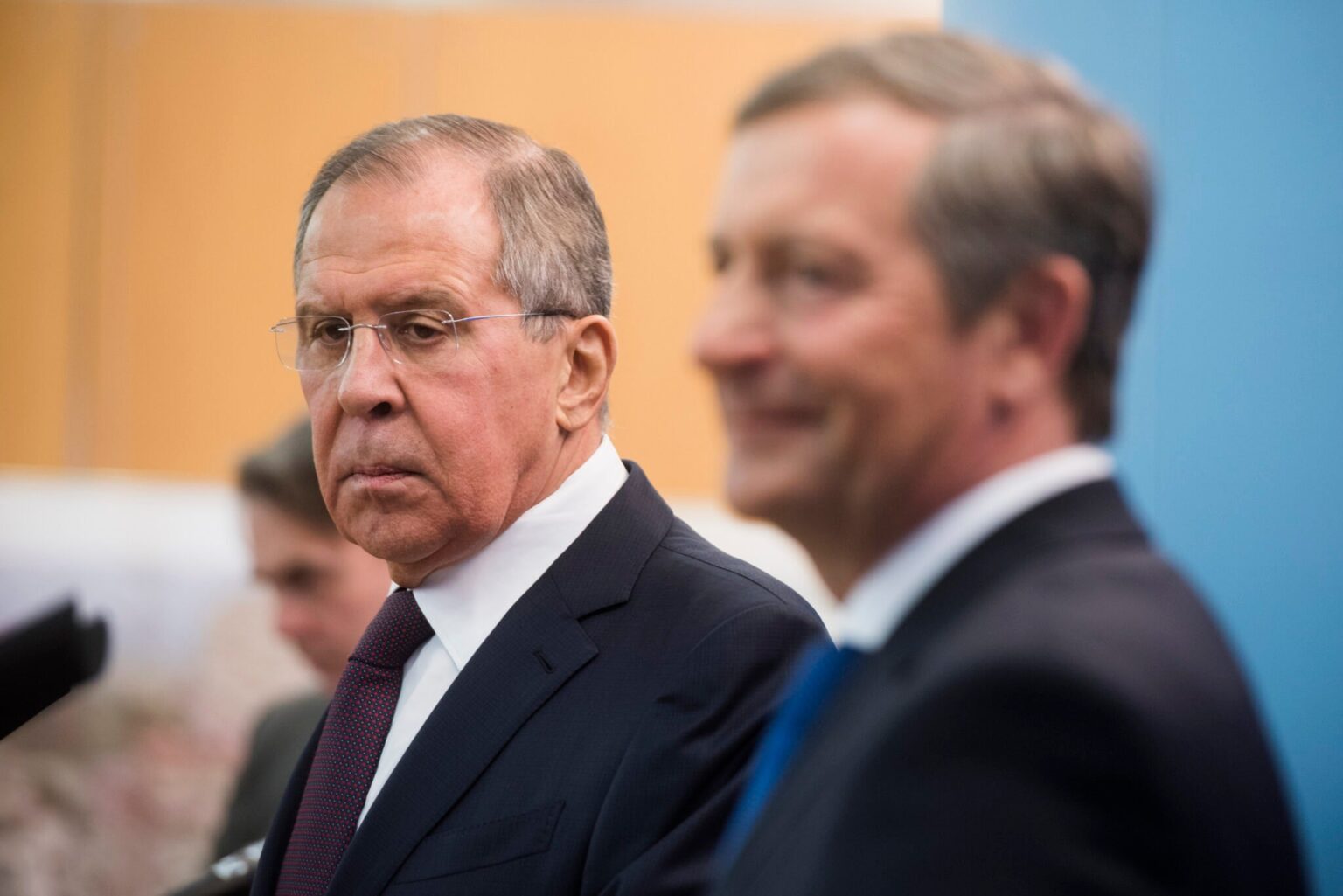By: Domen Mezeg /Nova24tv
“This period of time, when Karl Erjavec was the Minister of Foreign Affairs, was a period in our external policy that we cannot really be proud of. At that time, Slovenia was moving away from the general direction of our foreign policy, outlined in the parliamentary resolution, which is in many ways also defined by our membership in the European Union and NATO,” the long-time diplomat Božo Cerar remembered the period of Karl Erjavec’s misguided leading of the Ministry of Foreign Affairs, which happened during Miro Cerar’s government. As Božo Cerar also pointed out, Erjavec built an almost pathological “erotic” relationship with Putin’s regime.
In light of the Russian dictator Vladimir Putin‘s aggression against Ukraine, it is worth remembering how part of Slovenian politics, for example, the former Minister of Foreign Affairs, Karl Erjavec, who was in office during the time of Miro Cerar‘s government, supported the Russian occupying regime, which had at the time already occupied Crimea and indirectly seized part of Ukraine’s Donbas. Back then, we witnessed the ruthless destruction of relations with the West at the expense of ill ties with the autocratic regime in Moscow. The conduct of Slovenian (external) policy at the time went beyond the boundaries of good taste and to the detriment of relations with Western allies, member states of the European Union, and NATO. Let us also remind you of how Erjavec, as late as October 2017, after the Russian occupation of Ukrainian territories and violations of the inviolability of state borders had already happened, made a several-day visit to the Russian Federation.
And before that date, the Slovenian political representative in question allegedly already visited Russia as many as eleven times before, while he supposedly did not visit the United States of America even once. He developed a special, almost pathological “erotic” relationship with the Russian Foreign Minister Sergei Lavrov in particular. We spoke with Božo Cerar, a long-time diplomat who also served in the United States, regarding the controversial nature of Erjavec’s preference for Russia at the expense of the United States and other Western allies. “This period of time, when Karl Erjavec was the Minister of Foreign Affairs, was a period in our external policy that we cannot really be proud of. At that time, Slovenia was moving away from the general direction of our foreign policy, outlined in the parliamentary resolution, which is in many ways also defined by our membership in the European Union and NATO.”
“We moved away from the foundations of our external policy in this context, and there was also a clear neglect of relations with our strategic partner and ally – the United States of America.” As Cerar further explained, it was not just a matter of rapprochement with Russia and the Putin regime. Normal relations with a certain country are completely acceptable, even if it is one that is not really “close” to us or which does not represent the same values as we are trying to represent in Slovenia. Normal economic and political cooperation is also acceptable; however, “bowing” down to someone who undermines the organisations we are a member of (the European Union and NATO), and who had at the time just carried out the first aggression against Ukraine (in 2014) and even annexed part of that country, is something else entirely.
The USA’s reaction to Erjavec’s morbid “Putinophilia”: Slovenian statesmen were not invited to the White House
These are matters that should have been a warning to us at that time already (meaning, after 2014). Even back then, we should have been aware of the fact that something was not in line with our declared external policy. However, the opposite happened, as contacts with the Russian state leadership intensified at the time, and our statesmen made regular “pilgrimages” to Moscow. As the ambassador to the United States, Božo Cerar felt the consequences of these actions quite strongly, but he was powerless in that situation. Namely, it is not the ambassadors who create external policy, but the governments. “How did Americans react? Simply by not letting our politicians, representatives of Slovenia, visit the White House. They did not accept someone who went in the opposite way of the declared policy of alliance.” According to Cerar, this was only one of the ways in which he felt the consequences of these actions.
Namely, at that time, a turning point in Slovenia’s foreign policy happened, which manifested itself in several ways. It was not just about President Putin’s visit to Kranjska Gora and the Russian Chapel on the Vršič Pass, “it was the kind of thing that makes one wonder – what happened? The honorary corps of the Russian Army that carried out the aggression against Ukraine in 2014… Not only did it hold an honour guard at the Russian Chapel, but the next day it even paraded on Prešeren Square in Ljubljana. And in a few months (as proof that it was not merely a coincidence), the choir of the Russian Army, the same choir that played when the Russian flag was being raised in the annexed Crimea, performed in the Cankar Hall.”
